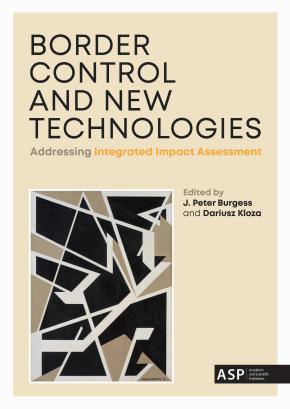
[Book] The PERSONA (‘Privacy, ethical, regulatory and social no-gate crossing point solutions acceptance’) consortium is pleased to announce the publication of the final outcome of the PERSONA project, titled Border control and new technologies - Addressing Integrated Impact Assessment, edited by J. Peter Burgess and Dariusz Kloza. To the book have contributed, Simone Casiraghi, Alessandra Calvi, Nikolaos Ioannidis, Sergi Vazquez Maymir, Niels Van Dijk and Alessia Tanas.
The user-friendly textbook presents the theory and practice of impact assessment tailored to new border control technologies, which are increasingly employed at state borders with the aim of facilitating border checks. It is predominantly addressed to border control authorities in the European Union and in the Schengen Area who wish to ensure that new technologies for controlling state borders respect the principles of democracy, the rule of law and human rights.
Experience has shown that the use of new technologies often comes into conflict with societal values such as the respect for fundamental rights to privacy and personal data protection. As a result, there is a growing need to accommodate two requirements, the first being the deployment of new border control technologies and the second being the respect for relevant societal values. This book introduces a tool that seeks to accommodate both requirements: impact assessment.
‘Impact assessment’ is an evaluation technique, used to analyze the potential future consequences of a given measure for societal values. The main objective of the assessment process is to support informed decision-making about whether or not, and under what conditions, to deploy a given measure.
To ensure its widest accessibility and dissemination, the book is published in Open Access, under the Creative Commons Attribution Non-Commercial 4.0 International (CC BY-NC 4.0) license. Open Access guarantees that the book will be distributed online, free of cost or other access barriers. Furthermore, the said Creative Commons license allows anyone to share and readapt the content of the book, including translating it, for non-commercial purposes, providing that proper credit is given to the authors. To ensure its quality, the book undergoes a double peer-review process, in accordance with the Guaranteed Peer Reviewed Content (GPRC) scheme, a standard used by ASP Editions.
The PERSONA project was co-funded by the European Union within the scope of H2020-EU.3.7.6. (ensure privacy and freedom, including in the Internet and enhance the societal, legal, and ethical understanding of all areas of security, risk, and management), H2020-EU.3.7.3. (strengthen security through border management) and SEC-18-BES-2017 (acceptance of no gate crossing point solutions), under Grant Agreement No. 787123.
It ran in the partnership of the interdisciplinary Research Group on Law, Science, Technology & Society (LSTS) of the Vrije Universiteit Brussel (VUB) (coordinator), Institutt for Fredsforskning Stiftelse (PRIO), Cyberethics Lab SRLS (CEL), ATOS Spain SA (ATOS), INOV INESC INOVACAO – Instituto de novas tecnologias (INOV), Queen Mary University of London (QMUL), Polismyndigheten Swedish Police Authority (SPA), Bundesrechenzentrum GMBH (BRZ), Ministarstvo Unutrasnjih Poslova Republike Srbije (SMOI) and Ministry Of Public Security (MOPS-INP) between September 2018 and February 2021.
More information about the PERSONA project and its results are available on the European Commission website.
News contact
For suggestions/feedback concerning the LSTS website news section, please contact us.
